Take Action
There are many ways to take action
We are here to help you consider whether who you are today (i.e. what you do and don’t do) is consistent with who you want to be.
We will not tell you what to do. Instead, we will show you some of the things that we, as former bystanders, are now doing.
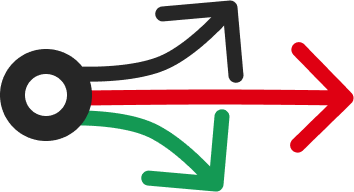
Support Policies
Below you can find multiple urgent policies that governments could adopt to de-escalate the violence and build peace with justice. Each country is different, so please check your government’s stance on any policy. Given the power of the Israel lobby and its allies, no government is likely to do all the right things without considerable bottom-up pressure (aka people power). Concerted action from voters can change how politicians behave.
- An immediate and permanent ceasefire, sufficient humanitarian provisions, adequate funding for UNRWA, and solid protection for humanitarian staff.
- A ban on the export of weapons to Israel.
- Legal accountability – support for the ICC and the ICJ.
- Release of all illegally detained persons.
- Ensure international media and the UN have unhindered access to Palestine.
- Recognition of the state of Palestine.
There are multiple ways to advance these policies:
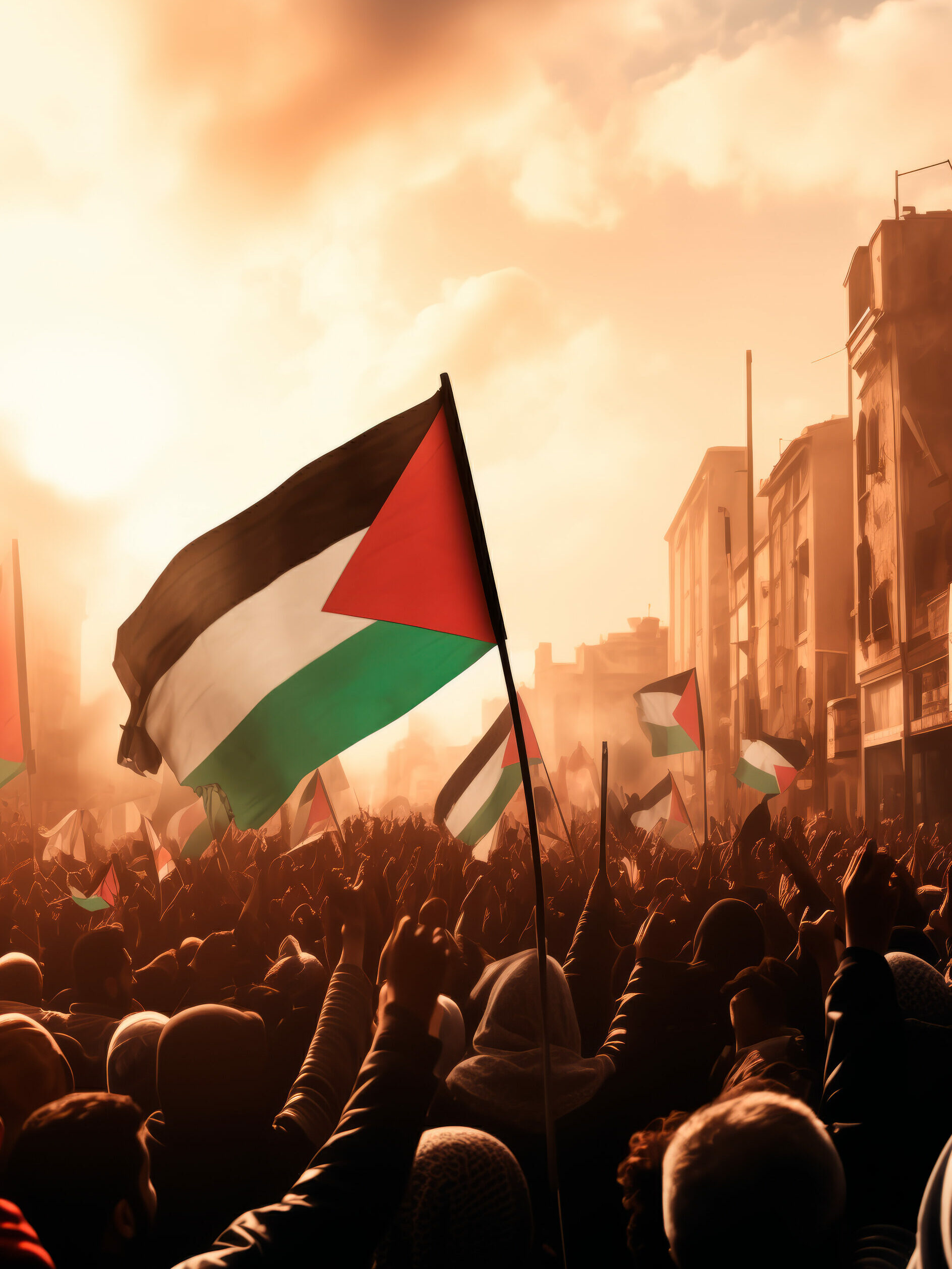
Immediate & Permanent Ceasefire + Increase in Humanitarian Aid
| What is a ceasefire? | It is the process of suspending any and all attacks through war or armed conflict on a region and its people. |
| Why immediate and permanent? | Since October 7th 2023, Israel intensified its military activity in Gaza and launched a devastating military campaign. It is reported to have killed nearly forty thousand people and wounded over eighty thousand. There are, however, strong reasons for concluding that the actual numbers are probably three times these reported numbers. In its assaults, Israel has systematically attacked healthcare systems and aid professionals, creating a burden of care no current healthcare infrastructure in Gaza can take on. The UN estimates that 1 million plus Palestinians are facing death by starvation by mid-July 2024. An immediate and permanent ceasefire is necessary to combat an impending famine and to provide displaced, wounded and disabled Palestinians access to humanitarian aid in Gaza. |
| How can you help? | International aid agencies have confirmed they can mobilize as soon as Israel allows land access and stops military action. However, the main agency providing aid, UNRWA, has recently seen its major donor, the USA, cut funding and political support. Advocate locally for your governments to call for an immediate and permanent ceasefire in Gaza. Push your local representatives and governments to start/ continue funding UNRWA. United Nations Relief and Works Agency for Palestine Refugees (UNRWA) is funded almost entirely by voluntary contributions from UN Member States. Several countries that have recognised Palestinian sovereignty have yet to commit to funding UNRWA. |
Lobby Elected Officials
Every country is different so you may need to adapt these guidelines for your situation. If you have comments or suggestions, please let us know.
- Research their statements. Check their social media accounts and parliamentary/government records and see if an established Palestinian solidarity group in your country can give you a summary of your elected representative’s position.
- Decide if your elected representative is, in fact, your best target. If they are very ideologically aligned with the Israel lobby, consider alternative targets for letter writing (government ministers, media executives, local decision-makers).
- Be clear about your agenda. Keep your communication short. There are four main options for engagement and it is recommended to choose one at a time.
- A. Inform them about new developments and ask a specific question which their research assistant will have to research/consider. For example, the ICJ ruling that Israel is plausibly committing genocide (do they support it, and if yes, how should the government respond? Or if no, why not?)
- B. Engage them on one aspect of the debate that you feel confident about. Disagreement is likely but they may be worried enough to tell the party elites that “well informed constituents are passionate about this issue, so we must do better”. Of course this will happen in private, so you will never know, and it also depends on other constituents doing this. Choosing one topic for each email/letter is a good way to sustain a dialogue.
- C. Tell them plainly they will lose your vote unless they do ___. Remind them why they should care (opinion polls, etc). This letter works best if lots of constituents do something similar – either independently or in a joint letter – and if your elected representative is at risk at the next election. The ‘asks’ need to be chosen carefully. The less asks, the better – keep it focused. Choose asks that are plausible, citing when possible other respected governments or leaders that have taken this action.
- D. Set a hurdle so high or use language that would make them likely to ignore your communication. This option is tempting but rarely gets results.


There is no “right” approach – it depends on your intent. If you intend to do (D) don’t waste a lot of time on it since it will only matter if many voters/donors do the same.
If you are going to do (A)-(C), it’s always useful to find something at the start to say thanks for or congratulate them on, and ideally you would call their office or ask for an appointment to talk in person. This shows that you really care.
Finally, the Israel lobby is very effective at this kind of organising – getting many constituents to engage persistently with elected representatives. If we want to see progress, we also need to get equally proficient at these skills.
Discover Organisations
As a focused volunteer initiative that won’t be fundraising, BNM does not seek to become a permanent organisation. Rather, we hope that those who come through this site will find established groups that they want to support. Here are some organisations that you might like to consider. If you know of others, please let us know.
| NGO | Country/Region | Description | Actions related to Palestine |
|---|---|---|---|
| Australia Palestine Advocacy Network | Australia | Provides a national voice for the many thousands of Australians who are concerned about Israel’s continuing human rights abuses against Palestinians, and the continuing effects of dispossession and displacement. | Has condemned the Australian Jewish Association (AJA) for providing a platform to Moshe Feiglin, an extremist Israeli politician known for his genocidal rhetoric. |
| European Center for Constitutional and Human Rights | Europe | ECCHR uses legal means to end impunity for those responsible for torture, war crimes, sexual and gender-based violence, corporate exploitation and fortressed borders. | |
| Association France Palestine Solidarité | France | A 5000 members strong organisation advocating for Palestinian to have the right to self determination. It’s organised in local commitees, supporting local actions. | |
| Platform of French NGOs for Palestine | France | Be a platform to orchestrate organisations involved in supporting the recognition of a sovereign Palestine based on the 1967 accords. They regroup 41 other NGOs, 28 being members, 13 being observers: https://plateforme-palestine.org/Les-membres | Provide resources to help people define antisemitism, organise mobilisations to lobby against EU/Israel agreements, to name a few. |
| Doctors Without Borders | Worldwide | International NGO launched by Bernard Kouchner following the war in Kosovo. The organisation is often deployed in conflict areas to support local populations. They currently have a team in Gaza and use their lobbying power to raise awareness and report from the frontline to public organisations, such as UN and governments. | Share resources on their website and communication on social media about their lobbying effort:
MSF calls for immediate ceasefire Israel-Hamas conflict |
| Action Palestine | France | Civilian initiative launched in 2023 to mobilise people desiring to stand for the protection of Gaza and Palestinians. They share resources to understand the situation, and help in orchestrating actions to raise awareness about the crisis. | Relaying actions, more than organising. |
| Sadaka — The Ireland Palestine Alliance | Ireland | The Ireland Palestine Alliance works to influence the Irish Government and EU policymakers in support of human rights. | Supported recognition of the State of Palestine. |
| South African BDS Coalition | South Africa | The coalition exists to bring various solidarity organisations together, under common campaigns, structures, and principles. It therefore creates a platform for the different Palestine Solidarity Organisations to work together and support one another. | Targeted boycott, divestment, and sanctions campaigns. |
| Mundubat | Spain | Mundubat has been working in Palestine since 1998, making a firm commitment to defend the rights of the Palestinian people and to establish a just peace in the region. | Human rights, food sovereignty, gender and social action campaigns. |
| Palestinian Community of Catalonia | Spain | Its mission is the defense of human rights and the right to self-determination of the Palestinian people. | Supported recognition of the State of Palestine. |
| CAABU – Council for Arab-British Understanding | UK | CAABU works for a British Middle East policy that promotes conflict resolution, human rights and civil society in the Arab world through informed debate and mutual understanding. Caabu is one of the most active NGOs working on the Middle East in British parliament since its establishment in 1967. | “Caabu works hard to ensure that politicians and the media have the most up to date facts, statistics and analysis of the situation in Gaza.” |
| Friends of Birzeit University (Fobzu) | UK | Fobzu works to promote access to education for Palestinians under occupation and in exile. | Ensure UK universities & international organisations are not complicit in Israel’s campaign
to eliminate future independent Palestinian educational life in Gaza. E.g. see their post on X |
| Palestine Solidarity Campaign (PSC) | UK | Palestine Solidarity Campaign (PSC) is a community of people working together for peace, equality, and justice and against racism, occupation, and colonisation. | Emergency Response: Stop the Attacks on Gaza |
| US Campaign for Palestinian Rights | USA | USCPR works with local organizers and activists, policymakers, movement leaders, media, & advocacy organizations to advance a rights-based, accountability and justice-oriented framework from the U.S. to Palestine. | A range of campaigns |
| If Not Now | USA | We are a movement of American Jews organizing our community to end US support for Israel’s apartheid system and demand equality, justice, and a thriving future for all Palestinians and Israelis. | Take Action to Reject AIPAC |
| Council on American-Islamic Relations (CAIR) | USA | CAIR’s mission is to enhance understanding of Islam, protect civil rights, promote justice, and empower American Muslims. CAIR seeks to empower the American Muslim community and encourage their participation in political and social activism. | An invite to become an ally |
| Arab American Institute | USA | Representing the interests of Arab Americans since 1985. | Demand the US votes YES to Recognize Palestine at the UN |
| Jewish Voice for Peace | USA | JVP is a national, grassroots organization working towards Palestinian freedom and Judaism beyond Zionism. It’s the largest such organization in the world. Being a member of a grassroots, national membership organization means joining a community of thousands working together towards freedom and justice for all from the U.S. to Palestine. Together, we can take action—online, in the streets, and in our communities. | Take action related to
Palestine Join Power Half Hour, M-F |
| We For P | USA | Professional support community for those who are sympathetic to the plight of the Palestinians. | Join us in creating cultures free from intimidation and retaliation. Everyone deserves workplaces that honor human rights and freedom of speech. |
| International Physicians for the Prevention of Nuclear War | Worldwide | A non-partisan federation of national medical groups in 56 countries, representing tens of thousands of doctors, medical students, other health workers, and concerned citizens who share the common goal of creating a more peaceful and secure world freed from the threat of nuclear annihilation and armed violence. | Has supported a ceasefire. |
| Amnesty International | Worldwide | Amnesty International is a global movement of more than 10 million people who are committed to creating a future where human rights are enjoyed by everyone. United by our shared humanity, we know that the power to create positive change is within all of us. | Campaigning to demand a ceasefire. |
| Human Rights Watch | Worldwide | We direct our advocacy towards governments, armed groups and businesses, pushing them to change or enforce their laws, policies and practices. | Made a statement to the U.N. Human Rights Council |
| Oxfam | Worldwide | Oxfam and partners continue to deliver assistance for Palestinians enduring conflict, while advocating for a ceasefire, the return of all hostages, and full humanitarian access to Gaza. | Oxfam is urging the Biden administration to stop arms transfers to Israel, prioritize a permanent ceasefire, secure the release of all remaining hostages, and allow unimpeded access for humanitarian aid to reach the civilians who need it right now. |
| Visualizing Palestine | Worldwide | Visualizing Palestine uses data and research to visually communicate Palestinian experiences to provoke narrative change. | Since 2012, Visualizing Palestine has equipped organizers, educators, and students with over 200 visual tools that center Palestinian experiences and bring awareness to Palestinian narratives. |
Use Social Media
There is an assumption that we all need to be posting and liking/resharing online. While social media is powerful, it may not be a match for everyone. If you do want to use social media, here are some tips for safer ways to engage.
- Follow, amplify, and share
Begin by supporting informed, moderate, respected experts advocating for Palestine. Interacting with online content (liking, commenting, sharing) helps it gain traction, giving visibility to news that the algorithms or mainstream media may have suppressed. Content from humanitarian agencies and international organizations may be less controversial points of entry:
Amnesty International, Médecins Sans Frontières, Save the Children, UNICEF - Start in friendlier territory
Consider posting amongst friends (e.g. Instagram, TikTok) before co-workers or bosses (e.g. LinkedIn) as you find your voice. Experiment with different social media platforms. Try a more comfortable space first, then expand outward. - Speak for yourself
Remove your employer’s name from your profile. This will help people perceive you as an individual rather than a representative of any company.
This is more mindful of risks to your employer and better protects your job. - Post when calm and collected
Avoid posting when you are overly angry or distressed. Social media is not advised immediately after waking up or right before going to bed. Try to limit
“doom scrolling” images of devastation (especially human injury) to what you truly need to stay motivated and active. Be brave, but be wise – the internet doesn’t forget. If you wouldn’t say something in a meeting with people you don’t know, pause and reflect before saying it on social media. - Center real human suffering
Fear originates from a threat of harm, and we all must decide what we’re willing to risk. For example, if you criticize Israel, you are almost certain to be called antisemitic. Learn to manage fear skillfully and weigh it against the deeper suffering. As author Regina Jackson counsels, “never let your FEELINGS be more important than someone else’s pain and suffering. PERIOD. Most of our fears are unfounded, GENOCIDE is real and happening as we watch.” - Live aligned with your values
Choose your friends and employers carefully so you are not self-censoring online or compromising what you know is right just to please others.

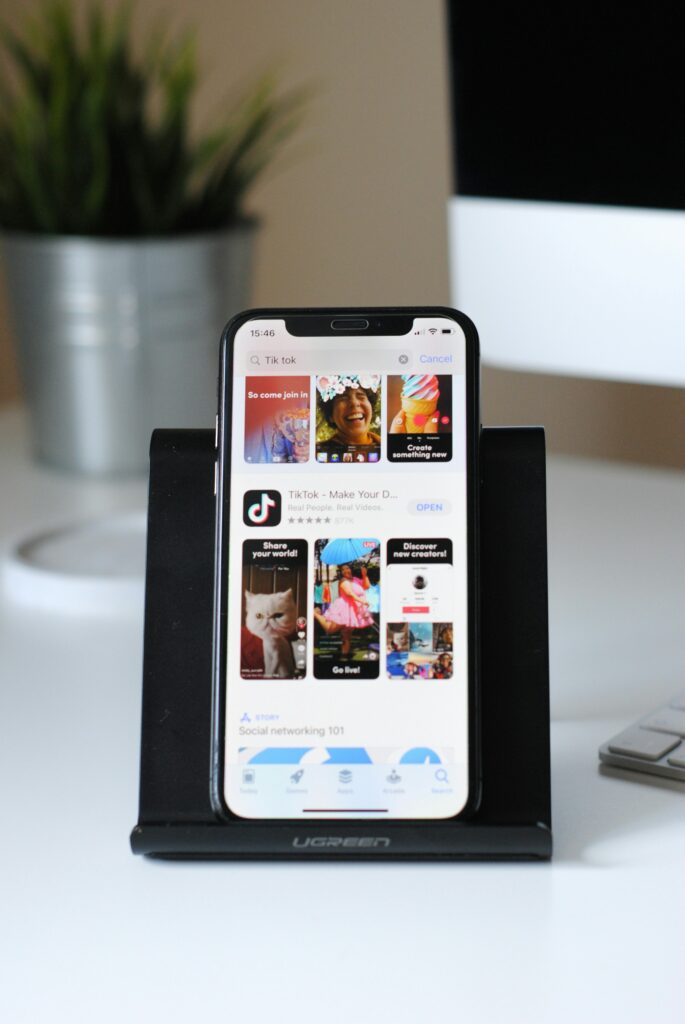
Advocate Without Social Media
There are many ways to take a stand without posting on social media. Activism can take various forms, from street protests to targeted boycotts. It is essential that you find what works best for you and spend your time on those levers of change.
Proponents of nonviolent options often gravitate towards Boycott, Divestment, and Sanctions (BDS). Involvement in the BDS movement is a powerful and way of showing solidarity with Palestinians. Isolation of rogue actors through boycotts has a history of success, including playing an influential role in ending apartheid in South Africa.
What is the BDS Movement?
- Boycott, Divestment, Sanctions (BDS) is a Palestinian-led movement for freedom, justice and equality. BDS upholds the simple principle that Palestinians are entitled to the same rights as the rest of humanity and all of us can take personal action in solidarity with them.
- Boycotts involve withdrawing support from Israel’s apartheid regime, including its sporting, cultural and academic institutions.
- Divestment campaigns urge universities and other institutions to withdraw investments from companies that are supporting the oppression of Palestinian people by the State of Israel.
- Sanctions campaigns pressure governments to fulfill their legal obligations to end Israeli apartheid, and not aid or assist its maintenance.
Why is BDS important?
- The BDS movement focuses on the collective power of the people. Rooted in community mobilization it aims at putting pressure on people in power (both government officials and corporate executives) to help stop a genocide.
- BDS campaigns work across different fields (eg climate justice, armed conflict, Indigenous rights) to ensure all those involved are safe. These campaigns are by design, nonviolent and anti-racist.
- Why are we advocating for a ban on exporting weapons to Israel? A key focus for the BDS movement is a ban on exporting weapons to Israel: unless Israel faces consequences of its actions, it will not change its approach. The current attacks on civilian population are being done through these weapons under the guise of self defense. However many experts consider that these attacks are a gross violation of international humanitarian law. Canada and the Netherlands have halted arms shipments to Israel over concern they could be used in ways violating international humanitarian law. The U.S. has long been by far the largest arms supplier to Israel, followed by Germany and Italy.
How can you help?
- Targeted Boycotts: Quakers in the USA have recently launched a website to highlight the most important companies which are arming Israel and facilitating its genocide in Gaza. Focusing action on well chosen targets is likely to be very important. The Boycat app can assist with ethical shopping choices.
- Lobbying elected representatives to support the policies needed: Several organizations promote “clicktivism” (aka internet activism) but it will be far more effective to do a personal email or even more, see the official face to face. It’s quite possible they won’t agree with you given the views of many party leaders. But don’t despair. If enough people show they really do care (ie take the time to write a personal letter or visit in person), then politicians will pass on this message to their leaders. This will happen in private but don’t for a minute doubt that elected officials don’t care about potential lost votes from people they hope will support them.
- Lobby the media for more balanced and more in-depth coverage: In most countries, media coverage has been biased against Palestinians and often lacking in depth. You could get involved with organisations like the British Palestine Media Centre or if there is no such group in your country, you could join with concerned journalists and other like-minded citizens to fill this important gap in the campaigning ecosystem.
- Lobby your organisation, profession/union or city council to support resolutions and actions in solidarity with Palestinians. This could include writing letters or articles in professional media or speaking in favour of resolutions at key meetings.
- Build people power through grassroots activism: Take part in/help organize sit-ins, vigils, marches, protest encampments, demonstrations, and other peaceful disruptions at weapon factories, military bases, complicit universities, arms fairs, and in front of relevant government buildings.

Belfactivist: “Celebrate Palestine. Liberate Palestine.”
Isabella Mascarenhas is the CEO and Founder of The IM-Pact Kinship, a new social impact, youth engagement and anti-racism consultancy. She posted this advice originally on LinkedIn about how we can be active without using social media.
💔 Watching a genocide unfolding before our very eyes for the last 8 months has been utterly heartbreaking and unbelievably heavy. Close to 40,000 lives have been taken so far with approximately 40% of those being children. Children that look like mine, people who look like me. The targeted attack on Rafah last night was too much…
There have been so many difficult, enlightening and necessary posts about this most recent war on Palestine. Some posters, in their hurt and frustration, have pointed fingers at those who remain silent on social media. This is a gentle reminder to everyone that there is life, and action, beyond social media and it is especially important to be kind at the moment when so many people are experiencing such pain, guilt and feelings of helplessness.
I confess that I am one of those who may have appeared to be silent. Truth is, there are many reasons why people are afraid to speak up on social media. But there is so much that you can do outside of these platforms like:
✊🏾 Attending protests and marches in person
✊🏾 Donating to charities, families and individuals in Palestine
✊🏾 Boycotting brands that are supporting these atrocities via apps like Belzemesh
✊🏾 Buying Palestinian brands such as Zaytoun
✊🏾 Educating others on the history and origins of this 76 year occupation or educating yourself if you don’t know
✊🏾 Providing emotional support to activists and youth
✊🏾 Challenging shops and retailers who are still stocking Israeli products
✊🏾 Encouraging your employer to issue statements and resources to support the mental health of colleagues who may be struggling
✊🏾 Reaching out to our Muslim, and Jewish, siblings to offer solace and solidarity
✊🏾 Writing to your politicians to demand a ceasefire
I am all too aware that it can be seen as selfish but I too was scared about the repercussions of being vocal on social media because I, like so many, have a family to support and I relied on my salary for that. But you better believe my family and I have been doing almost ALL of the above on our own time. And now that I am on a short career break, I had to break my silence on here too…
So please remember, not all action is visible on this little snippet of life we call social media 🙏🏽
If you are silent on here and aren’t doing any of the above, it’s not too late to start. Be on the right side of history. Never again means never again for EVERYONE.
Do what you can and please be kind…the world needs more of that right now 🖤💚❤️
#FreePalestine 🇵🇸🍉✊🏾
Start Conversations
Engaging in face to face conversations with trusted friends, family members, colleagues and members of our community is another powerful way to drive change.
While social media and lobbying are crucial, in-person discussions when done in the right conditions, are more likely to inspire people to change their opinion and/or take action for the first time. This is because when people hear about issues from someone they trust, they are more likely to engage deeply and consider new perspectives. Furthermore, personal interactions can create ripple effects, spreading awareness , understanding and action further afield.
Creating the conditions for powerful and constructive conversations
Here are some tips that can help, but remember, these conversations are difficult and may not always lead to immediate understanding or agreement. And that’s ok.
It’s important to choose carefully when, where and with whom to have these conversations. Sometimes, the best action is to step back if the other person is not ready for the discussion (or if you are feeling too heated).
With that and mind, here are some tips to help you prepare for your discussions:


- Assess Readiness and Openness Consider whether the person seems open to a genuine dialogue. If they are highly defensive or dismissive, it may not be the right time to engage. Also consider whether you feel sufficiently calm, grounded and empathetic to engage in discussion.
- Check Your Mental and Physical State: Be aware of your own emotions and physical responses. Ground yourself with deep breathing or a short walk if needed.
- Manage Your Expectations Understand that changing personal beliefs takes time and is not always possible. Approach the conversation with patience, knowing that immediate agreement or understanding is unlikely.
- Choose the Right Time and Place: Ensure a calm, stress-free environment like a quiet room or a park.
- Build Trust and Mutual Understanding: Acknowledge the emotional complexity of the issue. Show genuine respect and interest in the other person’s views.
- Tune into Their Mood: Approach with empathy and listen actively. Share personal stories to create an emotional connection.
- Provide Clear, Actionable Steps that they can choose from: Let them know about options available to them such as further education, joining advocacy groups, or making donations.Then let them decide what they would like to do. As humans we are more likely to act when we have decided to do so on our own terms.
- End on a Positive Note: Express gratitude for their engagement. If helpful: summarize key points and agreed actions. If helpful: invite them to continue the dialogue later, understanding change is gradual.
By following these steps, you can create the conditions for more constructive conversations that encourage greater understanding and inspire meaningful action.
If you want to go deeper into this topic here are some courses we recommend, to develop your ability to engage in difficult & powerful conversations:
- “Hard Conversations Workshops” by Jewish Voice for Peace. Unlock the power of meaningful dialogue with a workshop on having hard conversations. Join Esther Farmer and Asher Firestone in collaboration with @jewishvoiceforpeace, as they guide you through the art of powerful constructive conversations. Whether you’re engaging with close friends, colleagues or family members these workshops provide tools and techniques to navigate conversations about Israel and Palestine with empathy and respect. Sign up for monthly workshops at JVP.org/hardconvos.
- “Study & Action for Palestine” by White Awake: White Awake is an organization dedicated to empowering individuals through anti-racist, anti-capitalist, anti-imperial, and anti-colonial education. While they specialize in working with white people, courses are open to all. https://whiteawake.org/study-action-for-palestine-summer-2024-registration/
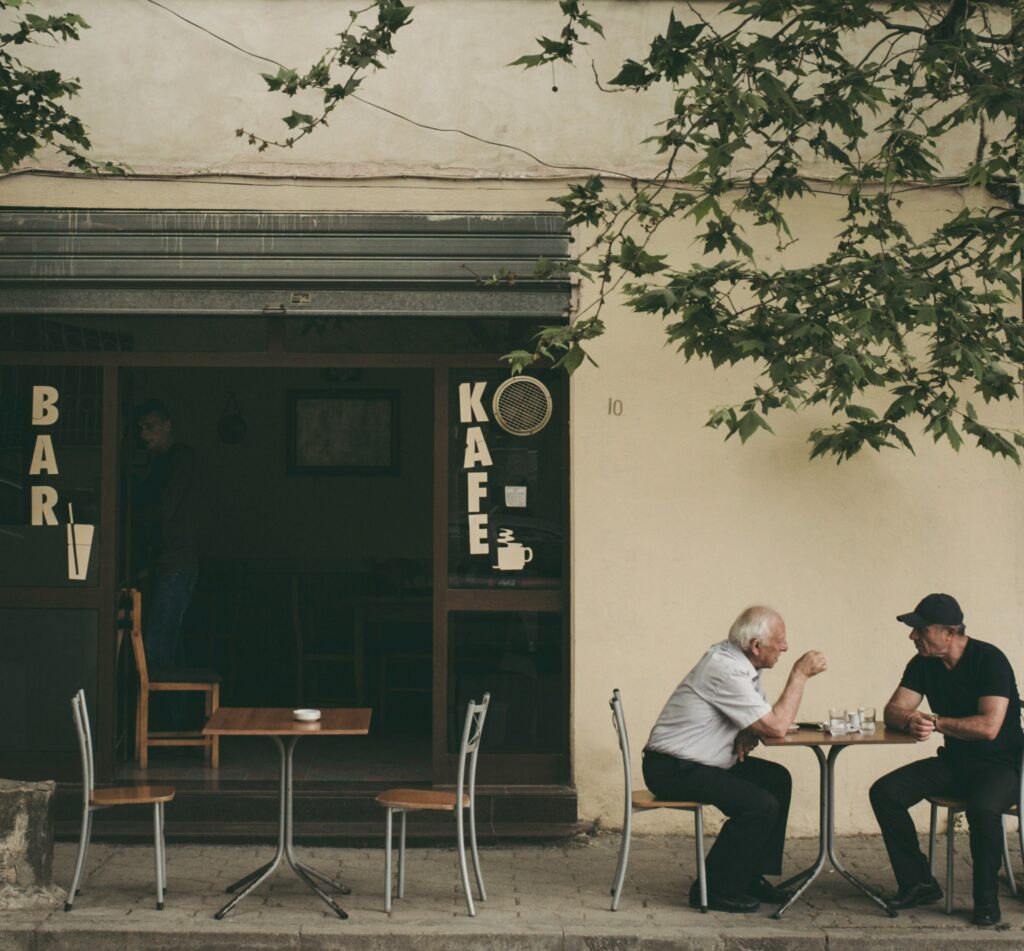
Practice Self-Care
Bearing witness to a crisis like the one we’re seeing in Gaza can seriously affect a person’s mental health. Ongoing exposure to graphic images, painful first-person testimony and numbing statistics can lead to feelings of helplessness, depression and exhaustion. This section offers some advice on how to deal with those feelings.
Stop Policing your Rage: What does care look like?
Anger is typically characterized as a negative, destructive emotion. When we become angry over an injustice, we are often dismissed by others as irrational and counterproductive, whether or not our anger is proportionate or justified. This ‘policing of rage’ can lead us to doubt ourselves: is our participation required?
The answer is ‘yes’. Whether you choose to actively protest on the ground, participate in BDS (Boycott, Divestment, Sanctions) campaigns, or educate yourself on the genocide, your participation adds to the global movement.
Activism and care are not mutually exclusive. Your activism can co-exist with your need to draw boundaries and to prioritize your health and the health of your loved ones.
Another narrative common in activist circles is the idea that taking care of ourselves is somehow selfish. This couldn’t be further from the truth. Locate care within your community, attend social functions, spend time with your family or chosen family, and allow yourself time to rest, recuperate and find joy.


Navigating Compassion Fatigue
If you’re engaged long term in activism and your care is left unchecked, sooner or later you run the risk of compassion fatigue. It’s important to recognize that many of us engaged in the movement also have our own mental health challenges and marginalized identities. Taking a step back to rest and recover is necessary to ensure that the collective trauma we are witnessing does not exacerbate our own struggles.
(Extended Read: Navigating compassion fatigue: Why it’s okay to self-soothe when a genocide needs our attention)
Despair is not Solidarity: Active Engagement vs Passive Consumption
In the age of social media, when you can follow a genocide unfolding as it happens, there is a high risk of isolation and despair where you find yourself incessantly scrolling through atrocities. That sense of helplessness keeps us disconnected from each other until, eventually, we find it hard to participate.
So it’s important to understand how your consumption contributes to this helplessness.
- Passive Consumption: There is a fine line between emotional processing, which moves us to action, compared to emotional venting across the internet, which normalizes despair. Passive consumption encourages us to consume death and destruction without a call to action. It perpetuates the belief that we must always be logged in, and that switching off your social media accounts is somehow looking away from the movement.
- Active Engagement: Part of activism is cultivating hope and practicing accountability. Active engagement calls for realistic methods of participation, which may include learning, online community organizing, and increasing visibility. While education and learning are powerful tools, there is often undue pressure to ‘know it all’. Caring for yourself means allowing yourself grace and time to learn.
“Sometimes we can end up holding our potential back in the name of insecurity around not knowing enough… Reject arbitrary standards of how super extra informed you must be before you take action in your community”.
– Palestinian Therapist Maria Fakhouri

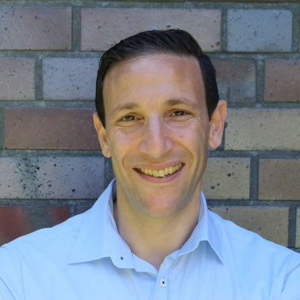 Coming from a mixed background of being American, Israeli, Palestinian, and German, with a Jewish mother and a Muslim father, I have long understood the complexities of identity and the courage required to stand for justice. I wrote a book called The Jew Who Rowed For Palestine, where the message of standing up for what’s right, no matter the opposition, is essential. But taking such a stand often feels like the whole world is against you. This is why Bystanders No More is so important. Their mission provides essential support to those who dare to stand for justice, ensuring that people do not turn a blind eye but instead take meaningful action for the equal rights of Palestinians, especially those in Gaza.
Coming from a mixed background of being American, Israeli, Palestinian, and German, with a Jewish mother and a Muslim father, I have long understood the complexities of identity and the courage required to stand for justice. I wrote a book called The Jew Who Rowed For Palestine, where the message of standing up for what’s right, no matter the opposition, is essential. But taking such a stand often feels like the whole world is against you. This is why Bystanders No More is so important. Their mission provides essential support to those who dare to stand for justice, ensuring that people do not turn a blind eye but instead take meaningful action for the equal rights of Palestinians, especially those in Gaza.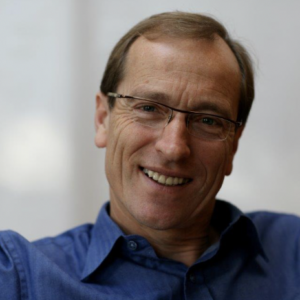 I changed my mind about Palestine because of three people. The first is an impressive rabbi who told me – as somebody who loves Israel – how horrified she was about what was happening in Israel and about the apartheid that she witnessed in the treatment of Palestinians. The second was a Palestinian professional whom I got to know in London who told me about his family in the West Bank, and how the land belonging to his family for generations had been stolen from them. And the third thing that really, really reached my heart was reading a novel called “Mornings in Jenin”. So now it’s rather obvious to me that we cannot justify the absolute disregard for the lives of thousands of innocent Palestinian civilians, women, children and men. I don’t understand why so little value is placed on the life of a Palestinian, compared, say to the lives of each individual English, German or American person. I just identify with fellow human beings who are being submitted to suffering, which major western powers seem to think is quite acceptable. And that’s why I think what Bystanders No More is doing is so important. Please speak up for what you know to be true.
I changed my mind about Palestine because of three people. The first is an impressive rabbi who told me – as somebody who loves Israel – how horrified she was about what was happening in Israel and about the apartheid that she witnessed in the treatment of Palestinians. The second was a Palestinian professional whom I got to know in London who told me about his family in the West Bank, and how the land belonging to his family for generations had been stolen from them. And the third thing that really, really reached my heart was reading a novel called “Mornings in Jenin”. So now it’s rather obvious to me that we cannot justify the absolute disregard for the lives of thousands of innocent Palestinian civilians, women, children and men. I don’t understand why so little value is placed on the life of a Palestinian, compared, say to the lives of each individual English, German or American person. I just identify with fellow human beings who are being submitted to suffering, which major western powers seem to think is quite acceptable. And that’s why I think what Bystanders No More is doing is so important. Please speak up for what you know to be true.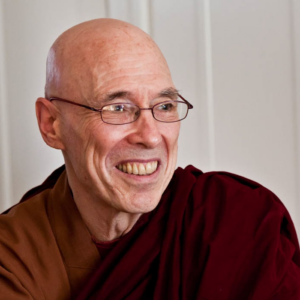 Israel’s genocidal campaign in Gaza might well be the defining moral crisis of our time—a crisis that should sear the conscience of every person with a clear sense of right and wrong. Israel’s military assault has been erasing almost every trace of human life in Gaza, as we have seen with our own eyes on our TVs and computer screens. Buddhists sometimes think that the proper response to such catastrophes is to maintain a stance of detached neutrality, but that would be a terrible error. Bystanders No More reminds us that, in the face of such devastation, we cannot remain silently on the sidelines. It’s time to take a stand, to demand that the fighting ends. BNM provides us with the resources we need to understand this tragedy in depth and with guidelines to taking effective action. As Buddhists committed to the values of compassion, peace, and reconciliation, we must join hands with others in calling for an end to the destruction of so many precious human lives.
Israel’s genocidal campaign in Gaza might well be the defining moral crisis of our time—a crisis that should sear the conscience of every person with a clear sense of right and wrong. Israel’s military assault has been erasing almost every trace of human life in Gaza, as we have seen with our own eyes on our TVs and computer screens. Buddhists sometimes think that the proper response to such catastrophes is to maintain a stance of detached neutrality, but that would be a terrible error. Bystanders No More reminds us that, in the face of such devastation, we cannot remain silently on the sidelines. It’s time to take a stand, to demand that the fighting ends. BNM provides us with the resources we need to understand this tragedy in depth and with guidelines to taking effective action. As Buddhists committed to the values of compassion, peace, and reconciliation, we must join hands with others in calling for an end to the destruction of so many precious human lives.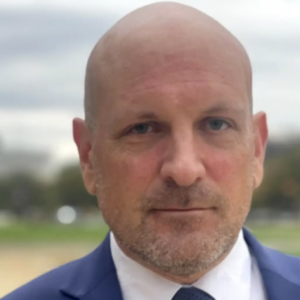 Many of us across the West have stayed silent on this issue not out of indifference, but out of fear, or out of a sense of disempowerment. But the fact is every one of us have an opportunity to bend the arc of history. Every voice raised for Palestine makes a difference. As their mission statement says, “The overall goal of this project is to provide supportive education and actionable suggestions for people who are ready (or nearly ready) to take a public stance.”
Many of us across the West have stayed silent on this issue not out of indifference, but out of fear, or out of a sense of disempowerment. But the fact is every one of us have an opportunity to bend the arc of history. Every voice raised for Palestine makes a difference. As their mission statement says, “The overall goal of this project is to provide supportive education and actionable suggestions for people who are ready (or nearly ready) to take a public stance.”
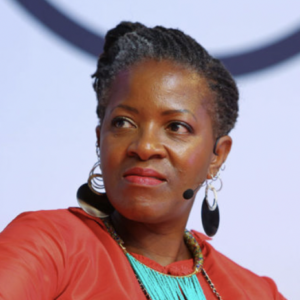 It’s ok to be a beginner about what’s happening to Palestinians. But it’s never too late to do the right thing. My father, Desmond Tutu, wept when he visited Palestine. He never let an opportunity to speak up for Palestine go by. What’s happening today is beyond that inhumanity that brought my father to tears. It is beyond anything that happened even in apartheid South Africa. What can we do? What I particularly like about Bystanders No More is that they don’t tell us what to do. But they do say to us – as a tough friend would – Don’t be silent! As my father often said, “If you are neutral in situations of injustice, you have chosen the side of the oppressor.”
It’s ok to be a beginner about what’s happening to Palestinians. But it’s never too late to do the right thing. My father, Desmond Tutu, wept when he visited Palestine. He never let an opportunity to speak up for Palestine go by. What’s happening today is beyond that inhumanity that brought my father to tears. It is beyond anything that happened even in apartheid South Africa. What can we do? What I particularly like about Bystanders No More is that they don’t tell us what to do. But they do say to us – as a tough friend would – Don’t be silent! As my father often said, “If you are neutral in situations of injustice, you have chosen the side of the oppressor.”